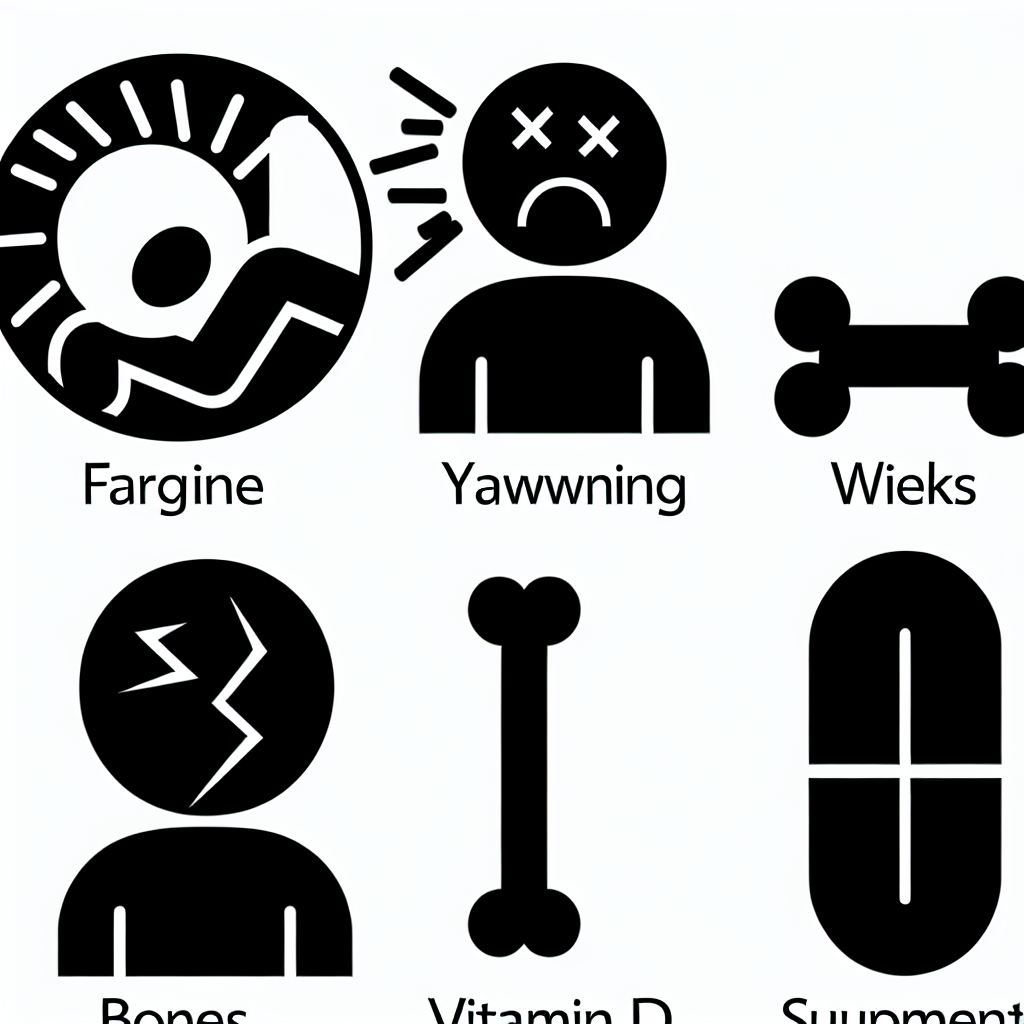Have you ever wondered why you’re feeling tired all the time or struggling with dull aches that don’t seem to go away? Maybe your mood has been off, or you’ve been catching every cold that’s going around. These symptoms could be your body’s way of alerting you to low vitamin D levels—a common but often overlooked health issue.
Vitamin D, also known as the "sunshine vitamin," is critical for maintaining strong bones, a steady immune system, and even a positive mood. Yet, vitamin D deficiency affects millions worldwide due to modern indoor lifestyles, dietary gaps, and less time in direct sunlight. In this guide, we’ll explore the signs of low vitamin D, why it happens, and the steps you can take to fix it.
What Makes Vitamin D So Essential?
Vitamin D’s Role in Overall Health
Vitamin D is far more than just a nutrient for strong bones—it’s essential for how your body functions every day. First and foremost, it helps your body absorb calcium and phosphorus, which are crucial for bone and teeth health. Without it, bones can become brittle over time.
But here’s the kicker—vitamin D also affects your immune system, muscle function, and even your mood. Research suggests it may help reduce inflammation and protect against chronic conditions like diabetes and heart disease.
Where Do You Get Vitamin D?
While vitamin D is found in certain foods like salmon, egg yolks, fortified milk, and mushrooms, sunlight is its most powerful source. When UV rays hit your skin, they trigger your body’s production of vitamin D. But, if you work indoors all day or live in an area with limited sunlight, you could easily fall short.
How Can You Tell You Have Low Vitamin D?
Subtle Symptoms to Watch For
Vitamin D deficiency doesn’t always announce itself loudly—it’s often a stealthy problem. Here are the most common signs:
- Fatigue: Feeling tired all the time, even after resting, is one of the clearest signals of low vitamin D levels.
- Muscle Weakness or Pain: If your muscles feel sore or sluggish, your body might be trying to tell you it lacks this essential nutrient.
- Bone Pain or Fragility: Are fractures happening more frequently? Weak bones from insufficient vitamin D could be the reason.
- Mood Swings or Depression: Do seasonal mood shifts hit you hard? Reduced sunlight exposure in winter can lower vitamin D levels, which may affect your mood.
- Frequent Illnesses: A compromised immune system makes you more prone to colds, flu, and other infections.
While these symptoms alone don’t guarantee a deficiency, they’re worth paying attention to—especially if they persist.
Why Does Vitamin D Deficiency Happen?
Top Causes
It’s surprisingly easy to become deficient in vitamin D. Here’s why:
- Too Much Indoor Time: Busy schedules make it difficult to spend time outdoors, reducing your exposure to sunlight.
- Dietary Shortfalls: If your meals don’t include vitamin D-rich foods like fatty fish, eggs, or fortified products, you’re missing an important source.
- Age-Related Declines: As you age, your skin’s ability to produce vitamin D decreases naturally.
- Skin Pigmentation: People with darker skin tones have higher melanin levels, which block UV rays and reduce vitamin D production.
- Health Conditions: Disorders like celiac disease, Crohn’s disease, or kidney issues can interfere with absorption or processing of vitamin D in your body.
Are You More at Risk? Key Groups to Watch
While anyone can develop low vitamin D levels, certain groups are more likely to face deficiency:
- Older Adults: Vitamin D production slows with age.
- People with Dark Skin: Melanin reduces vitamin D synthesis.
- Pregnant and Breastfeeding Women: Increased nutritional demands can lead to lower levels if not supplemented.
- Individuals with Obesity: Vitamin D is stored in fat cells, making it less available for use by the body.
How to Diagnose and Fix Vitamin D Deficiency
Getting Diagnosed
Suspecting a deficiency? Consult your doctor for a blood test called the 25-hydroxy vitamin D test, which will measure your vitamin levels accurately. It’s the definitive way to determine whether supplementation is necessary.
Simple Solutions for Low Vitamin D
If your test shows low levels, here are some steps to help restore balance:
- Get More Sunlight: Aim to spend 10–30 minutes outdoors during midday—this is when UV rays are strongest. Introduce an outdoor walk or lunch break to help meet your needs.
- Revamp Your Diet: Boost your intake of vitamin D-rich foods like salmon, sardines, egg yolks, mushrooms, and fortified cereals and dairy products.
- Take Supplements: Over-the-counter vitamin D supplements are widely available and effective. Always follow dosing advice from your healthcare provider to avoid over-supplementation.
- Make Lifestyle Changes: Try incorporating outdoor hobbies, like gardening or jogging, or plan regular picnics in the sun—it’s a fun and healthy way to stay active.
Why It’s Dangerous to Ignore Deficiency
Left unaddressed, vitamin D deficiency can lead to serious health consequences, including:
- Osteoporosis: Low levels weaken bones, increasing the risk of fractures.
- Immune System Damage: Chronic deficiency weakens your ability to fend off illnesses.
- Chronic Diseases: Research links low vitamin D to conditions such as diabetes, cardiovascular disease, and some cancers.
Don’t wait for these problems to arise—early diagnosis and treatment can make all the difference.
Take Control of Your Health Today
Vitamin D is fundamental to living a healthier, more energized life, yet it’s one of the easiest deficiencies to overlook. If you’re facing symptoms like fatigue, aches, or mood swings, it might be time to consider whether your vitamin D levels need attention.
The good news? Fixing a deficiency is simple and manageable. From spending more time outdoors to adjusting your diet or adding supplements, small steps can lead to big improvements in your health.
So why not start today? Get outside, enjoy some sunshine, and let your body soak up the vitamin D it needs to thrive. You deserve to feel your best!
